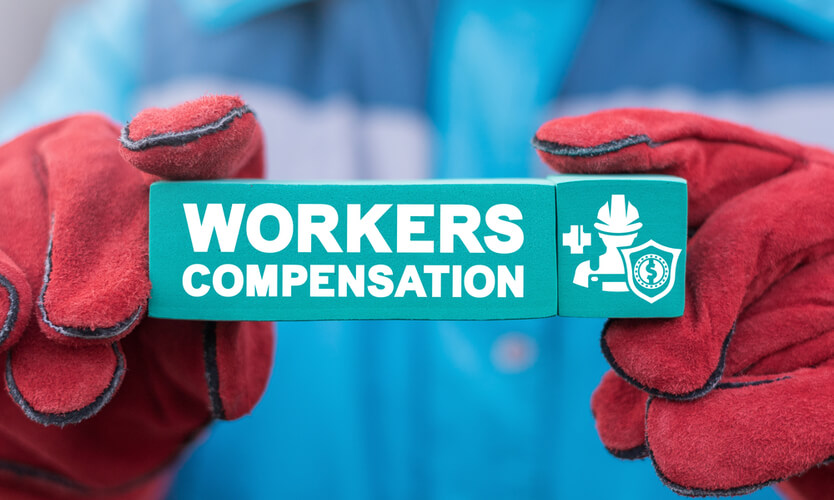In the bustling state of Florida, where tourism, agriculture, and construction industries thrive, the safety and well-being of workers are paramount. In ensuring this, Florida mandates a robust workers’ compensation system. Workers’ compensation insurance in Florida is a vital safety net for both employees and employers, providing financial protection and support in case of work-related injuries or illnesses. Understanding the nuances of Florida’s workers’ compensation insurance is essential for businesses and workers alike. This comprehensive guide delves into the intricacies of Florida workers comp insurance, covering its importance, requirements, benefits, and the process involved.
Importance of Florida Workers Comp Insurance:
Workers’ compensation insurance serves as a crucial safeguard, offering financial protection to employees who suffer injuries or illnesses arising from their work. For employers, it provides immunity against lawsuits filed by injured employees, thereby mitigating potential legal and financial risks. In Florida, workers’ compensation insurance is mandatory for most businesses with employees. Failure to comply with this requirement can result in severe penalties, including fines and legal liabilities.
Requirements for Employers:
Florida law mandates that most employers with four or more employees, whether full-time or part-time, must carry workers’ compensation insurance. This requirement extends to construction industry employers with one or more employees. Sole proprietors and corporate officers may choose to exempt themselves from coverage but can opt to include themselves. However, exemptions must be filed with the state.
Employers can obtain workers’ compensation coverage through private insurance carriers or through the state’s Workers’ Compensation Joint Underwriting Association (WCJUA) if they are unable to secure coverage in the private market. Self-insurance is another option available to qualifying employers, provided they meet stringent financial requirements and obtain approval from the Florida Division of Workers’ Compensation.
Benefits for Injured Workers:
Injured workers in Florida are entitled to various benefits under the workers’ compensation system, including:
- Medical Benefits: Workers’ compensation covers the cost of medical treatment, including doctor visits, surgeries, medications, rehabilitation, and assistive devices related to the work-related injury or illness. There are no deductibles or copayments for medical treatment received through workers’ compensation.
- Lost Wage Benefits: If a work-related injury or illness results in temporary disability, partial disability, or permanent disability that prevents the employee from returning to work or earning the same wages, they may be eligible for lost wage benefits. These benefits typically amount to a percentage of the worker’s average weekly wage, subject to statutory maximums and minimums.
- Vocational Rehabilitation: In cases where an injury or illness prevents an employee from returning to their previous job, workers’ compensation may cover the cost of vocational rehabilitation services, including job training, education, and job placement assistance to help the worker re-enter the workforce in a suitable capacity.
- Death Benefits: If a work-related injury or illness results in death, workers’ compensation provides death benefits to the deceased employee’s dependents, including compensation for funeral expenses and ongoing financial support for surviving spouses and dependents.
Claims Process:
The process of filing a workers’ compensation claim in Florida typically begins with notifying the employer of the injury or illness as soon as possible. Employers are then required to report the injury to their workers’ compensation insurance carrier within a specified timeframe. Failure to report injuries promptly can result in delays or denials of benefits.
Once the claim is reported, the insurance carrier investigates the claim to determine its validity and assesses the extent of benefits owed to the injured worker. This may involve reviewing medical records, conducting interviews, and gathering other relevant information. If the claim is accepted, the insurance carrier will provide benefits accordingly. If the claim is denied, the injured worker has the right to appeal the decision through the Florida Division of Workers’ Compensation.
Challenges and Controversies of Florida Workers Comp Insurance:
While Florida Workers Comp Insurance aims to provide adequate protection for workers and employers, it is not without its challenges and controversies. One of the most significant issues in recent years has been the ongoing debate over reforms to the state’s workers’ compensation laws.
Critics argue that successive legislative reforms have eroded benefits for injured workers while favoring insurance companies and employers. Proponents of reform contend that changes are necessary to curb rising insurance costs and combat fraud within the system.
Another contentious issue is the classification of workers as independent contractors rather than employees, which can exempt employers from providing workers’ compensation coverage for those individuals. This classification has led to disputes over worker misclassification and the denial of benefits to workers who should rightfully be considered employees.
Also Read: Understanding Workers Comp Insurance Quote
Workers’ compensation insurance plays a vital role in safeguarding the interests of both employees and employers in Florida. It provides essential financial protection for workers who suffer work-related injuries or illnesses while shielding employers from potential legal liabilities. Understanding the requirements, benefits, and processes involved in Florida’s workers’ compensation system is essential for businesses and workers alike to navigate effectively. Despite its challenges and controversies, Florida’s workers’ compensation system remains a cornerstone of workplace safety and protection in the Sunshine State.


